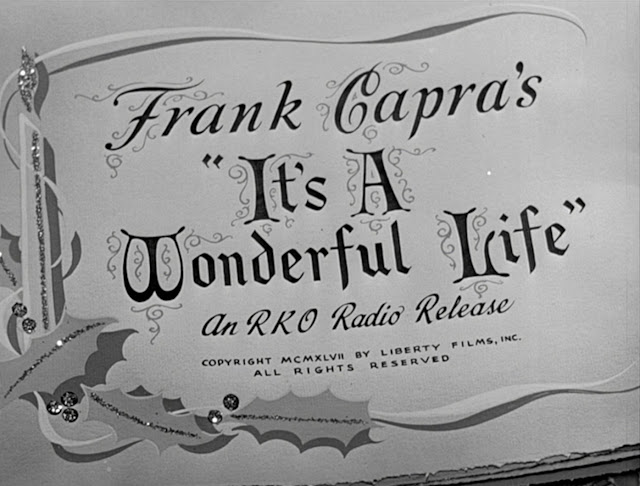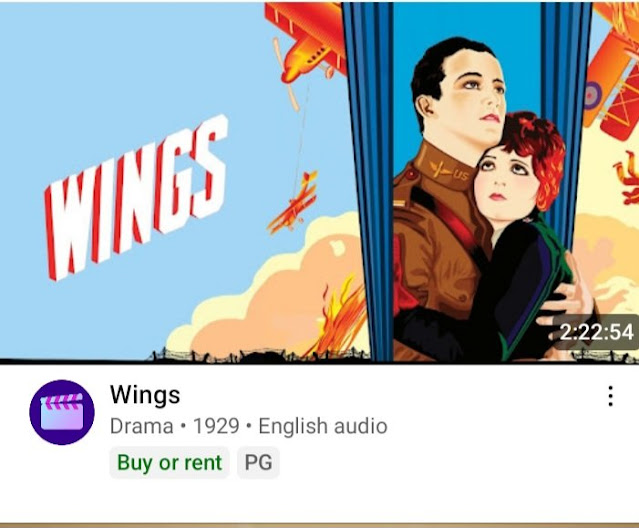Last Christmas, I scratched It's a Wonderful Life off my to watch list. It took me awhile, I suppose it was a combination of never being on TV when I was free at Christmastime and a case of absorbing much of the film via cultural osmosis due to the staggering number of other media spoofing, parodying and tributing the film. I learnt about the key plot twists as a child thanks to the Simpsons and an episode of Johnny Bravo. I was surprised to learn that the bits everyone knows about are only a fraction of the film, and that I still really enjoyed it despite popular culture spoiling nearly every key scene. Initially Jimmy Stewart's performance stunned me since I had been under the impression that his aww shucks and golly gee dialogue and put upon but dogged demeanour combined with that semi-warble line delivery was a product of exaggerated spoofs and not the performance of a Hollywood leading man.
It's a great film, has a good moral, the cast plays their roles excellently, I didn't feel its length and this is nothing new to anyone whose seen the film. All I'll say on that is that if you were like me and were in no rush to see it, give it a go, it'll be a pleasant evening.
So, with that out of the way, the reason I'm talking about this movie is politics. The film was controversial on release wayback in 1946, the FBI in an early move in the second Red Scare investigated the film on suspicion of it being Communist propaganda.
There is submitted herewith the running memorandum concerning Communist infiltration of the motion picture industry which has been brought up to date as of May 26, 1947....
With regard to the picture "It's a Wonderful Life", [redacted] stated in substance that the film represented rather obvious attempts to discredit bankers by casting Lionel Barrymore as a "scrooge-type" so that he would be the most hated man in the picture. This, according to these sources, is a common trick used by Communists.
[redacted] stated that, in his opinion, this picture deliberately maligned the upper class, attempting to show the people who had money were mean and despicable characters. [redacted] related that if he made this picture portraying the banker, he would have shown this individual to have been following the rules as laid down by the State Bank Examiner in connection with making loans. Further, [redacted] stated that the scene wouldn't have "suffered at all" in portraying the banker as a man who was protecting funds put in his care by private individuals and adhering to the rules governing the loan of that money rather than portraying the part as it was shown. In summary, [redacted] stated that it was not necessary to make the banker such a mean character and "I would never have done it that way."
Which is of course total nonsense. Yes, Mr Potter as portrayed by Lionel Barrymore is an absolute scumbag who you're supposed to hate with vehemence, but Jimmy Stewart's character is also a banker. The film isn't Communist at all, Capra the director of the film is throwing his weight behind small scale community oriented capitalism. Bailey Brothers Building and Loans is a bank and its importance as an institution in the town and the hope it provides to the residence of Bedford Falls is salvation through capital investment, the homes they're building and enabling the community to buy come from those investments.
Potter and Bailey are opposed ideologically, but it's an ideological divide within, the logic of capitalism. Potter represents old monopoly capitalism, he spends the film trying to destroy the Bailey Brothers because they are the one sole form of competition in the area, so he as the big established capitalist uses every advantage he has to break the rival bank, and when that fails he just steals from them to try and deal the killing blow. I think what really got the FBI and its informant [REDACTED] ornery was that Potter, the villain, is representative of the American system, he's the typical capitalist and so criticism of how he acts and behaves is criticism of officially sanctioned America. He also doesn't face any punishment for his many morally and ethically dubious but often legal actions. I don't know if Frank Capra was consciously aware of just how damning that is a judgement of American society. The film shows us that the established powers in America can use that power to crush the good in society out of personal spite or paranoia over a potential competition, and they can do that with impunity.
The real tragedy is that in the real world, the Potters won. Credit Unions, community and co-operative banks still exist in the present and some have grown to some size, but compared to the banks' ala Potter? Pebbles next to mountains. The successful stakeholder initiatives increasingly morph into or sell to the big banks, which are now so big and concentrate so much capital that they can plunge the whole global economy into recessions when they screw up. And closer to home, the Potters won the battle for the film.
It's a Wonderful Life didn't
just annoy the FBI, it did poorly with the critics and was a box office
disappointment. It languished in obscurity and was such a low priority
that when the copyright was up for renewal in 1974 it was botched,
pushing the film into the public domain. Thanks to that clerical error
that led to the film's eventual rise to classic status and beloved
fixture of American holidays. TV stations could air the film in exchange
for royalties to the owner of the copyright of The Greatest Gift, the
24-page source material, which still made it much cheaper to show than
most alternative films. This also probably played a role in why the film
is so widely referenced, parody is protected under the doctrine of Fair
Use, copyright can still provide grounds for offended rights holders to
make it not worth the trouble.
Republic Pictures used its ownership of the copyright to the source material to clamp down further on the distribution of the film, effectively forcing it back into copyright. Republic Pictures had closed down in the 1960s and was revived in the 80s due to business restructuring, shortly after reclaiming It's a Wonderful Life they were folded up into Viacom. No one who worked on the story or the film is connected with the royalties and fees that are accrued by the film today. The cinematic community has been robbed of the film thanks to the power of large corporations to influence the legal system of the United States with their large law firms and lobbying agents.
I suppose It's a Wonderful Life has
some solace for us, in the film Potters triumph as bleak as it is not
the end of the struggle, George Bailey doesn't give into despair despite
the many trying obstacles, he earns his happy ending and we can too.






